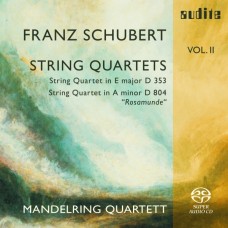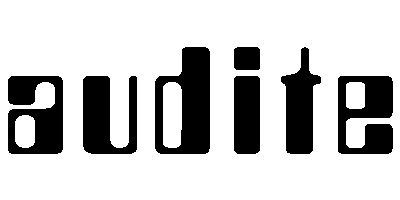您的購物車沒有添加專輯!
搜尋
舒伯特:弦樂四重奏D.804/353 F. Schubert: String Quartets Vol 2
|
“Not to be scorned as a fi rst-born.” That is what the Allgemeine musikalische Zeitung had to say about the 1824 premiere of Schubert’s A minor Quartet at the concert hall of the Vienna Musikverein. That critic could hardly have expected that the work would one day belong to the cornerstones of the string quartet repertoire! The Quartet is characterised by a lyrical, song-like basic mood as well as the moderate tempi of its movements. All movements begin with ideas for rhythmic material, more or less out of the blue; this material is just as important for formal and cyclical continuity as are the lyrical and dance-like themes. In spite of the overall lyric mood, Schubert also elegantly succeeds in drawing out material for dramatic passages from his motifs. If the A minor Quartet was conceived for professional musicians, the E major Quartet is the last one that Schubert composed for amateur musicians for domestic use. Probably written as early as 1816, Schubert is here still clearly linked to the craftsmanship, sonorous mastery and formal proportions of the Viennese classics. The predominantly brief themes and motifs are striking; only later did Schubert give these up in favour of broader expanses and epic breadth. The atmosphere of Viennese Classicism can be sensed in the entire Quartet; one has a glimpse of the later Schubert only in the Andante, with its simple, folkloristic themes, especially its subsidiary theme. Following the enormous success of “Schubert: String Quartets, Vol. 1,” the Mandelring Quartett now proudly presents Volume 2. The Quartet plays with dedication and takes great pleasure in detail, once more convincing the listener through its musical and technical mastery. These qualities can be especially vividly experienced in the Surroundsound of this SACD recording. |
|
Franz Schubert String Quartets Vol. II • String Quartet E major D 353 • String Quartet A minor D 804 ‘Rosamunde‘ |
編號 |
曲目 |
長度 |
作詞 |
作曲 |
演奏 |
樂團 |
演唱 |
指揮 |
試聽 |
|---|


